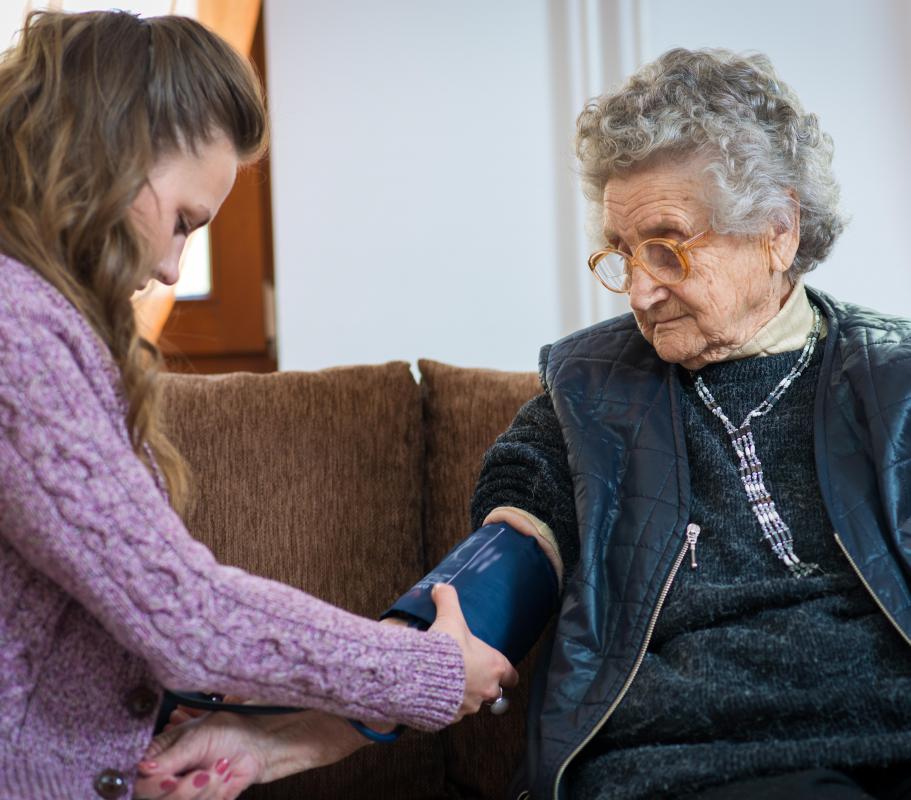At WiseGEEK, we're committed to delivering accurate, trustworthy information. Our expert-authored content is rigorously fact-checked and sourced from credible authorities. Discover how we uphold the highest standards in providing you with reliable knowledge.
What Are the Benefits of Physiotherapy for the Elderly?
The benefits of physiotherapy for the elderly include restoring, maintaining, or improving physical activity, movement, and balance. Research indicates that the ability to maintain physical function also improves overall health by enhancing psychological and social well being. The longer individuals maintain a physically active lifestyle, the longer they enjoy a healthy life of independence. Other uses of physiotherapy include assisting patients who are recovering from illness or injury or who are suffering from central nervous system disorders.
Usually, following a recommendation from a physician, a physiotherapist evaluates a patient's needs by reviewing health records and performing a physical assessment. An individualized program of physiotherapy begins with a proposed set of goals determined by the licensed therapist and the patient. Physiotherapy for the elderly generally includes physical exercises that improve or increase coordination, flexibility, endurance, strength, and range of motion. Elderly clients receive instruction that ensures proper execution of exercises and recommendations as to how often and how many repetitions each movements requires.

Therapists meet with patients as needed to monitor and document progress and to provide encouragement, suggestions, and possibly new exercises, to bring patients closer to their physical goals. Besides exercise, therapists use a number of techniques to assist clients in meeting goals. Hot and cold packs relieve discomfort, decrease swelling, and improve blood circulation. Some therapies include electrical stimulation, which minimizes physical pain by interfering with neurologically transmitted signals. Therapists and assistants might also use massage to relax stiff muscles and joints, allowing increased movement.

Research indicates that physiotherapy for the elderly improves cardiovascular circulation by strengthening cardiac output, and by decreasing blood pressure and cholesterol levels. Increasing overall physical activity also reduces the risk of cardiovascular disease and minimizes symptoms in individuals diagnosed with congestive heart failure. Physiotherapy for the elderly reduces the risk of the development diabetes, enhances the body's ability to effectively use insulin, and improves blood sugar control in diabetic patients. Other benefits of physiotherapy include decreasing bone density loss and minimizing muscle loss while improving the ability to accomplish daily tasks. Physiotherapy for the elderly also affects the psychosocial life of patients by bolstering self esteem, decreasing depression, and improving the quality and duration of sleep cycles.

Besides maintaining the physical abilities of healthy, but inactive patients, other uses of physiotherapy for the elderly include recuperation from fractures. After hospitalization for a fracture or because of illness, physical therapy gradually helps patients regain the physical strength and mobility enjoyed prior to the event. By learning exercises and techniques to remain mobile and maintain balance, therapists safeguard patients from future accidents and falls. Stroke victims experience varying degrees of physical recovery after working closely with physical therapists. Likewise, physiotherapy for the elderly benefits with Parkinson's disease, as a consistent regimen of physical movement slows the progression of rigidity often associated with the disease.
AS FEATURED ON:
AS FEATURED ON:

















Discussion Comments
Physiotherapy plays a most important role for curing any type of pain in body. It may take time initially, but removes every kind of pain.
Post your comments